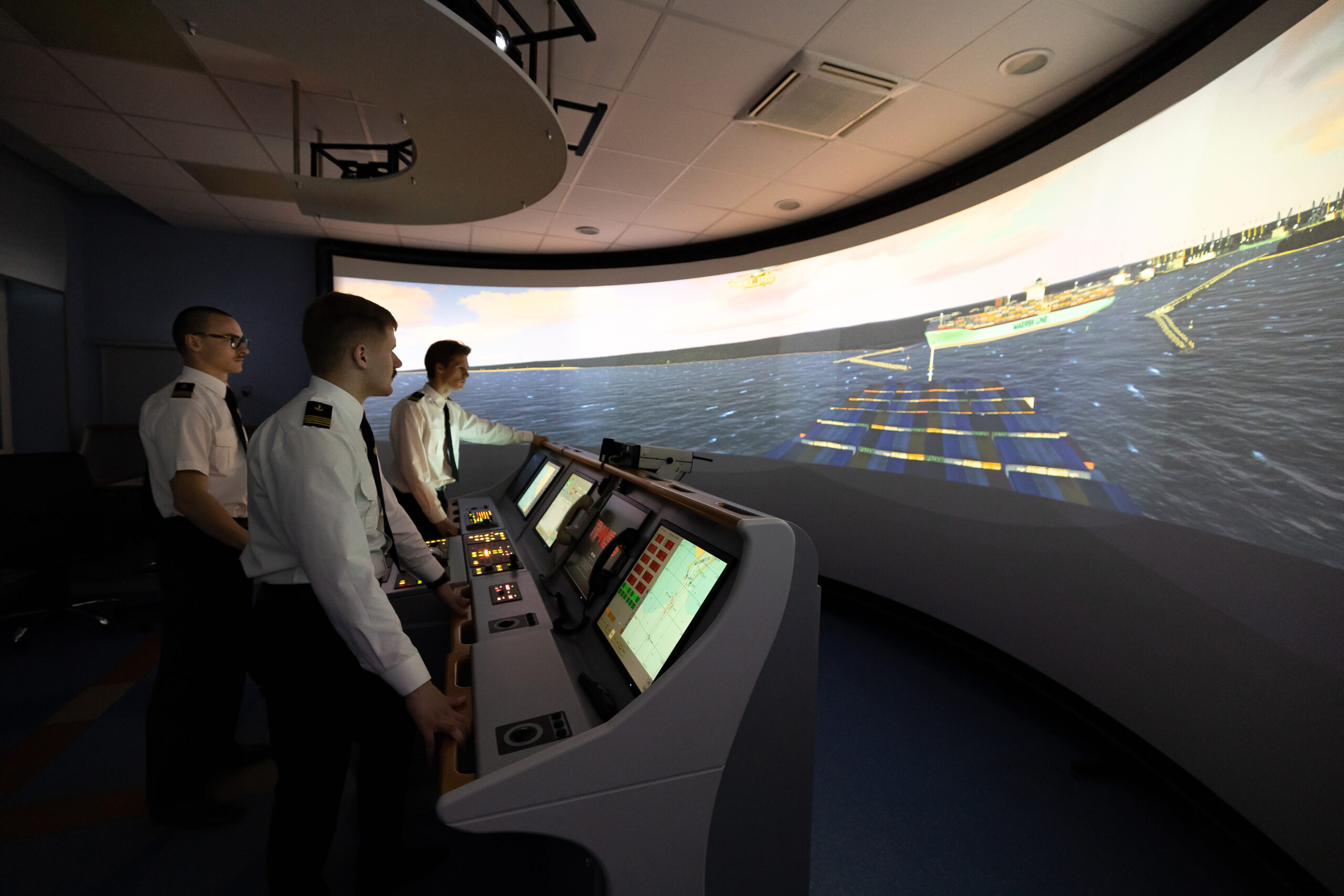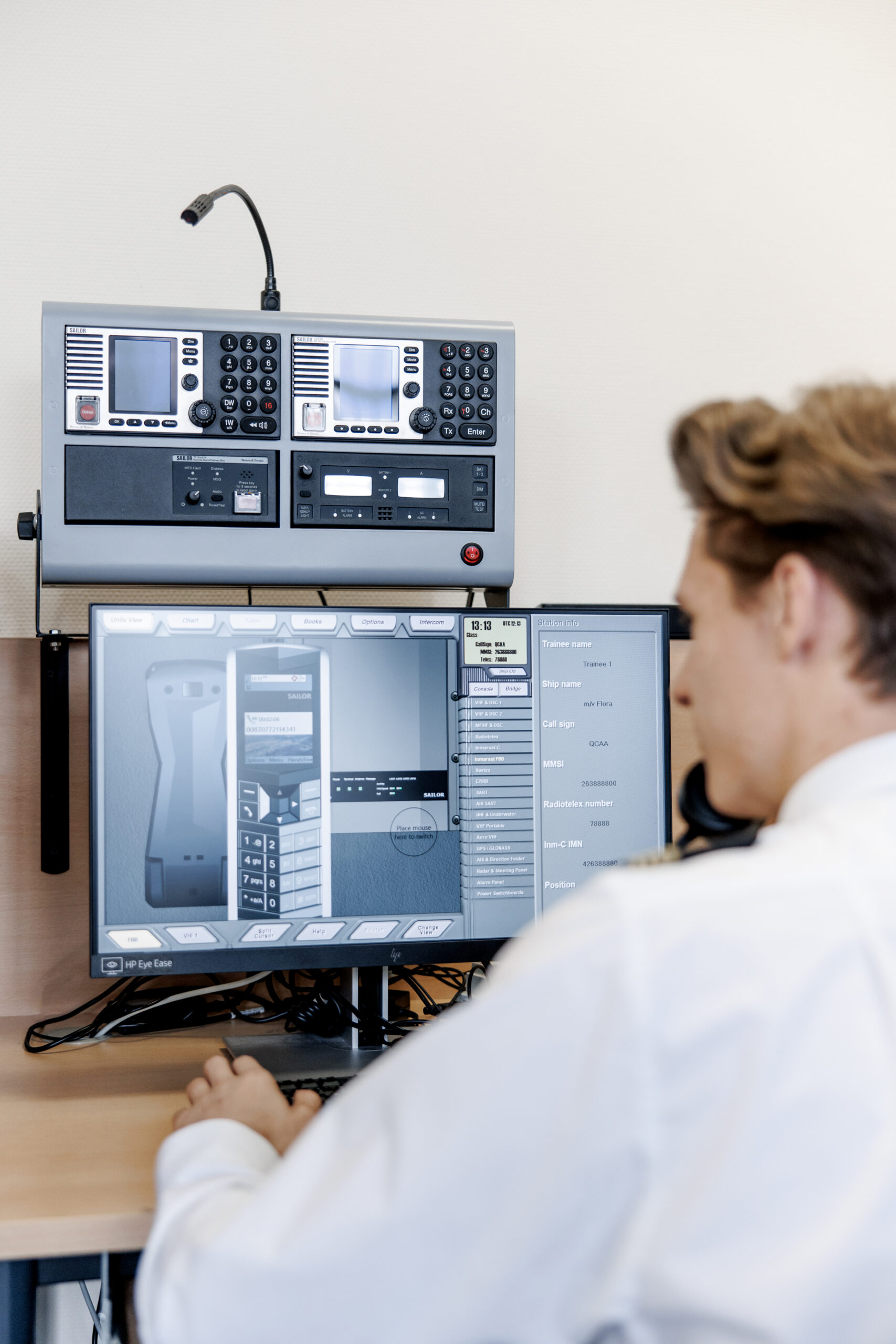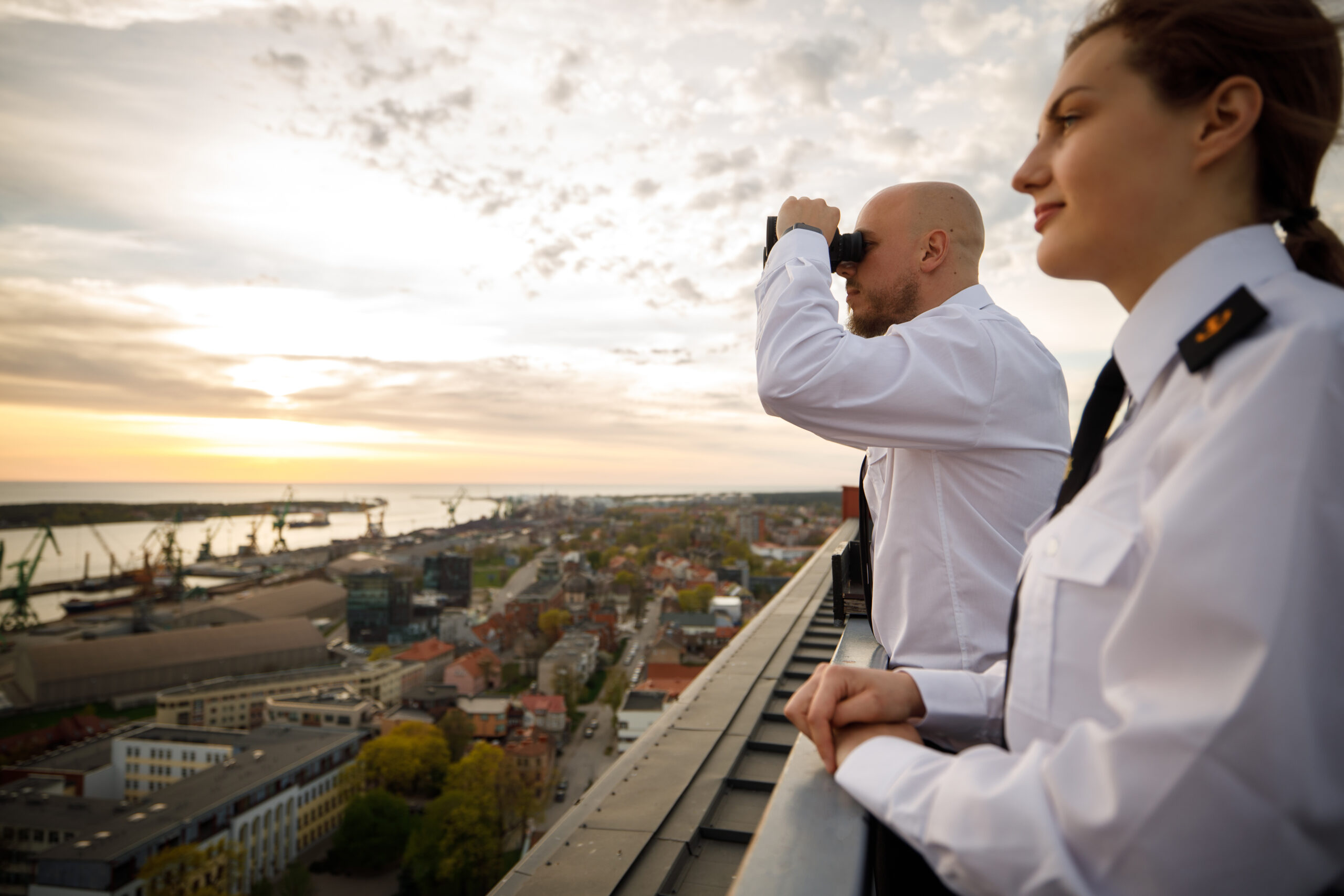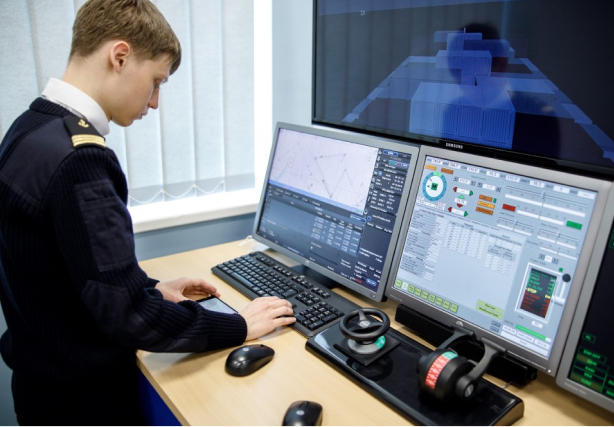
FOR MORE INFORMATION:
Room: 221
Phone: +370 46 397 245
Mobile Phone: +370 650 25 985
Department of Marine Navigation dr. Vytautas Dubra
E-mail: vytautas.dubra@vilniustech.lt
Room 221
Phone: +370 46 397 245
Mobile Phone: +370 650 25 985
Study specialist Aurima Gramavičienė
E-mail: aurima.gramaviciene@vilniustech.lt
a
Modern trends in the global shipping market are directly related to the processes of global digitization, which is why automation solutions for ship management functions are gaining momentum in shipping. Graduates of this study programme, Officers in Charge of a Navigational Watch (OICNW) and future ship masters, will be able to safely handling and manage ships of varies types of unlimited tonnage, plan and carry out a safe and cost-effective ship voyage, effectively operate modern navigational systems.
More information in the system AIKOS
Duration of studies
(Full-time studies)
Duration of studies
(Part-time studies) in Lithuanian language only
Duration of internship on bord of vessels
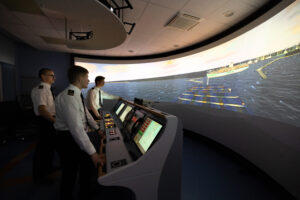
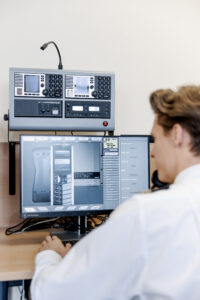
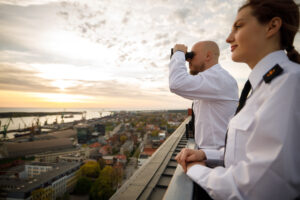
The lecturers are researchers and scientists in the field of marine technology, and professional seafarers who base their knowledge on their personal experience at sea.
Career
The Marine navigators qualification obtained gives the opportunity to assume the position of the leading specialist of the ship’s crew, as the assistant to the master on duty; after accumulating the length of service prescribed by the legislation of the Ministry of Communication of the Republic of Lithuania, the individual can assume the position of chief assistant to the OICNW, and later the OICNW, on board ships of unlimited tonnage, unrestricted navigation area, and various purposes. The competences acquired and the documents certified allow you to pursue a maritime career as a master on board vessels flying the flag of any State.
After completing the professional career of a seafarer, it is possible to establish a maritime business company or gain employment in one, as well as in the Lithuanian Transport Safety Administration, the Klaipėda State Seaport Authority, the industries of coastal and inland water transport, etc.
THE AIM OF THE STUDY PROGRAMME
To train a highly qualified navigator, a deck officer who will be able to:
– safely operate vessels of unlimited tonnage;
– plan and execute a safe and cost-effective voyage;
– effectively operate modern navigation and radio equipment;
– apply knowledge of social, economic, environmental and technological sciences in the planning, management and control of the ship’s operations, in accordance with national and international general and maritime legislation, IMO conventions, quality standards and STCW requirements.
INTERNSHIP
The duration of professional internship is 12 months:
– 6-month professional seagoing internship (after the 2nd year);
– 6-month graduation seagoing internship (after the 3rd year).
The place of internship:
– Seagoing vessels of 500 GT and more;
Practical professional skills are acquired during the internship while working on board of various types of seagoing vessels (containerships, bulkers, tankers, Ro-Ro, Ro-Pax, etc.) in various seagoing regions around the world.
The first certificate of competence CoC is issued after the successful completion of the study programme and acquiring 12-month seagoing service.
CONTINUITY OF STUDIES
Graduates have the right to study at the master’s degree study programmes according to the procedure established by institutions of higher education. It is possible to choose a further field of study in both social and technological/engineering fields of studies. There are excellent opportunities for this at Vilnius Gediminas technical university (VILNIUS TECH), Mykolas Romeris University, and others in Lithuania and abroad.
ENVIRONMENT OF STUDIES
Studies take place in a modern environment that meets international requirements. There are traditional engaging lectures, seminars, discussions, analysis of scientific and professional literature, and students have access to a modern library filled with the latest scientific and informational publications, along with an internal digital teaching/learning environment and digital resources of the academy.
During lectures, exercises, and seminars, analysis of modern ship management scenarios and cases is carried out, technological solutions to ship management problems are sought, and computer simulation of the ship’s voyage is performed. Computerized training is extremely relevant during the studies, so training of practical skills takes place in electronic navigation simulators, simulating real scenarios of ship control.
Training and exercises of leadership and psychological resilience, individual and team projects, laboratory work on ship viability and saving people’s lives, firefighting, medicine, radio communication, electronic nautical charts, engineering and technology, etc., conducted in laboratories, individual work, professional internship on ships sailing in the oceans of the world, etc. are extremely important elements of the programme.
Students of LMA maritime studies are required to wear uniforms.
LMA is equipped with sports halls and gyms, which are intended for optional sports, physical education classes, sports competitions, sports and other events in which students of all study programmes participate. They can also spend their free time in these facilities.
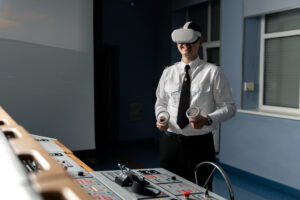
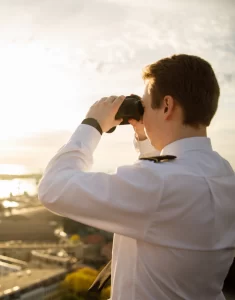
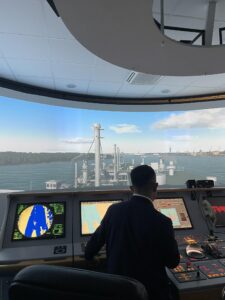
SUBJECTS OF STUDY PROGRAMME
| 1st SEMESTER | CREDITS (ECTS) |
|---|---|
| Maritime English (Introduction to Maritime English) | 3 |
| Philosophy and Ethics/ Sociology/ Fundamentals of Political Science (Optional study subject) | 3 |
| Applied Mathematics | 4 |
| Navigational Mathematics | 3 |
| Basics of Marine Technology | 6 |
| Labour Safety, Civil Protection and Marine Environment Protection | 5 |
| Seamanship basics/ Geography of transport systems (Optional study subject) | 6 |
| Physical education/ Rowing and sailing (Facultative) | 2 |
| Lithuanian language and culture (Facultative) | 1 |
| 2nd SEMESTER | CREDITS (ECTS) |
|---|---|
| Maritime English (Pilot, Ship Handling and Watchkeeping Terminology and Language Practice) | 5 |
| Transport information technologies | 5 |
| Ship Construction | 6 |
| Ship‘s Power Plants | 3 |
| Ship‘s Electrical and Electronical Equipment | 3 |
| Ship’s Handling and Maneuvering | 3 |
| Navigation and position determination | 5 |
| Physical education/ Rowing and sailing (Facultative) | 2 |
| Lithuanian language and culture (Facultative) | 1 |
| 3rd SEMESTER | CREDITS (ECTS) |
|---|---|
| Maritime English (Meteorology, Emergency Response and Communications Terminology and Language Practice) | 5 |
| Second Foreign Language (Lithuanian, Russian, German, Spanish, Ukrainian, Latvian, Belarusian) (Optional study subject) | 3 |
| Ship’s Theory | 4 |
| Technical Aids to Navigation | 4 |
| Navigational Meteorology | 5 |
| Fundamentals of Management and Human Resources Management | 5 |
| Personal Survival Techniques, Fire Prevention and Fire Fighting, Elementary First Aid, Personal Safety and Social Responsibilities training programme (STCW A VI/1) and Security Training for Seafarers with Designated Security Duties (STCW A-VI/6-2) | 3 |
| Lithuanian language and culture (Facultative) | 1 |
| 4th SEMESTER | CREDITS (ECTS) |
|---|---|
| Maritime English (Cargo Handling Terminology and Ship‘s Correspondence) | 3 |
| Ship’s Handling in Emergency Situations | 3 |
| Advanced Fire Fighting training programme (STCW A-VI/3); Medical First Aid & Medical Care training programme (STCW A-VI/4) | 3 |
| Bridge Aids for Navigation | 4 |
| Professional Sea-going practice/ Professional sailing practice on warships/ Professional coastal sailing practice (Optional study subject) | 18 |
| Lithuanian language and culture (Facultative) | 1 |
| 5th SEMESTER | CREDITS (ECTS) |
|---|---|
| Professional Sea-going practice/ Professional sailing practice on warships/ Professional coastal sailing practice (Optional study subject) | 18 |
| Maritime Law | 4 |
| Prediction of Oceanographic Conditions | 3 |
| Celestial Navigation | 3 |
| Ship’s Handling in Various Conditions | 3 |
| Lithuanian language and culture (Facultative) | 1 |
| 6th SEMESTER | CREDITS (ECTS) |
|---|---|
| Language proficiency and academic literacy | 4 |
| Cargo Handling by Sea | 5 |
| Passage Planning, Conduction and Position Determination | 5 |
| Maritime Transport Economics Basics | 3 |
| General Operator’s Certificate for the Global Maritime Distress and Safety System (GOC for GMDSS, STCW A-IV/2) | 6 |
| Radar Navigation, Radar Plotting and Use of ARPA (operational level, STCW A-II/1) | 4 |
| The Operational Use of Electronic Chart Display and Information Systems (ECDIS) | 2 |
| 7th SEMESTER | CREDITS (ECTS) |
|---|---|
| Proficiency in Survival Craft and Rescue Boats other than Fast Rescue Boats training programme (STCW A-VI/2-1) | 2 |
| Professional Bachelor Diploma Thesis | 2 |
| Final professional seagoing practice/ Final professional sailing practice on warships/ Final professional coastal sailing practice (Optional study subject) | 26 |
| 8th SEMESTER | CREDITS (ECTS) |
|---|---|
| Final professional seagoing practice/ Final professional sailing practice on warships/ Final professional coastal sailing practice (Optional study subject) | 10 |
| Ship’s Handling and Maneuvering in Difficult Conditions | 2 |
| Passage Planning and Navigation | 3 |
| International Safety Management (ISM) Code | 3 |
| Radar Navigation, Radar Plotting and Use of ARPA (management level, STCW A-II/2) | 2 |
| Bridge Resources Management (STCW A-II/1-2, A-VIII/2) | 2 |
| Final Qualification Exam | 2 |
| Professional Bachelor Diploma Thesis | 6 |




